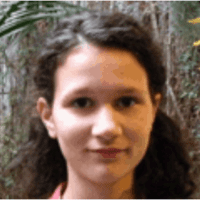
Developing a bioassay to study Arabidopsis thaliana defense response to aphid salivary components
This summer, I studied the interactions between Arabidopsis thaliana and green peach aphids (Myzus persicae). Aphids ingest sap from the sieve elements of plants using a stylet appendage, a long hollow mouthpiece. Saliva plays an essential role in aphid feeding- both sheath saliva, which gels upon secretion to form a barrier around the stylet, and watery saliva, which is continuously spit into the phloem upon feeding. Watery saliva has been shown to contain specialized proteins that work to deter and disable the plant’s normal defense mechanisms in response to feeding. The Jander lab recently discovered that aphid saliva infiltrated onto a leaf can elicit many of the same responses as actual aphid feeding on the plant- an important step forward in this area of research and the background for my project.
My Experience
My research was focused on creating a bio assay to facilitate the study of aphid-plant interactions. My assay was designed to identify possible plant immune response changes in reaction to salivary proteins collected from aphid diet. Responses that I measured include Ca+2 release, increased reactive oxygen species concentration, pH change, and callose deposition. Techniques that I employed in these experiments include diaminobenzidine and aquiline blue staining, RNA extraction, plant infiltration, PCR and qPCR, and Gateway cloning. The time I spent in the Jander lab opened my eyes to the wide variety of opportunities and research areas in plant science, I now have a better idea of the course of study I want to pursue in college and graduate school. I am sincerely grateful I was able to participate in the PGRP program.
